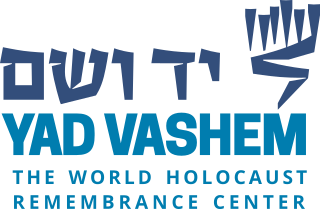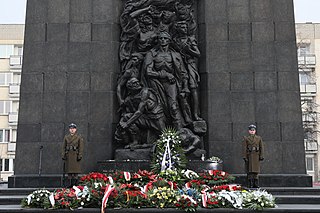April is the fourth month of the year in the Gregorian calendar, the fifth in the early Julian, the first of four months to have a length of 30 days, and the second of five months to have a length of less than 31 days.

December is the twelfth and the final month of the year in the Julian and Gregorian calendars. It is also the last of seven months to have a length of 31 days.
January is the first month of the year in the Julian and Gregorian calendars and the first of seven months to have a length of 31 days. The first day of the month is known as New Year's Day. It is, on average, the coldest month of the year within most of the Northern Hemisphere and the warmest month of the year within most of the Southern Hemisphere. In the Southern hemisphere, January is the seasonal equivalent of July in the Northern hemisphere and vice versa. Birthday Number the letter "J".

Jewish holidays, also known as Jewish festivals or Yamim Tovim, are holidays observed in Judaism and by Jews throughout the Hebrew calendar. They include religious, cultural and national elements, derived from three sources: biblical mitzvot ("commandments"), rabbinic mandates, and the history of Judaism and the State of Israel.

Yad Vashem is Israel's official memorial to the victims of the Holocaust. It is dedicated to preserving the memory of the Jews who were murdered; honoring Jews who fought against their Nazi oppressors and Gentiles who selflessly aided Jews in need; and researching the phenomenon of the Holocaust in particular and genocide in general, with the aim of avoiding such events in the future.

The World Jewish Congress (WJC) was founded in Geneva, Switzerland in August 1936 as an international federation of Jewish communities and organizations. According to its mission statement, the World Jewish Congress' main purpose is to act as "the diplomatic arm of the Jewish people." Membership in the WJC is open to all representative Jewish groups or communities, irrespective of the social, political or economic ideology of the community's host country. The World Jewish Congress headquarters are in New York City, and the organization maintains international offices in Brussels, Belgium; Jerusalem; Paris, France; Moscow, Russia; Buenos Aires, Argentina; and Geneva, Switzerland. The WJC has special consultative status with the United Nations Economic and Social Council.

Aliyah is the immigration of Jews from the diaspora to, historically, the geographical Land of Israel, which is in the modern era chiefly represented by the State of Israel. Traditionally described as "the act of going up", moving to the Land of Israel or "making aliyah" is one of the most basic tenets of Zionism. The opposite action—emigration by Jews from the Land of Israel—is referred to in the Hebrew language as yerida. The Law of Return that was passed by the Israeli parliament in 1950 gives all diaspora Jews, as well as their children and grandchildren, the right to relocate to Israel and acquire Israeli citizenship on the basis of connecting to their Jewish identity.

Yom Hazikaron laShoah ve-laG'vurah, known colloquially in Israel and abroad as Yom HaShoah and in English as Holocaust Remembrance Day, or Holocaust Day, is observed as Israel's day of commemoration for the approximately six million Jews murdered in the Holocaust by Nazi Germany and its collaborators, and for the Jewish resistance in that period. In Israel, it is a national memorial day. The first official commemorations took place in 1951, and the observance of the day was anchored in a law passed by the Knesset in 1959. It is held on the 27th of Nisan, unless the 27th would be adjacent to the Jewish Sabbath, in which case the date is shifted by a day.

Holocaust Memorial Day is a national commemoration day in the United Kingdom dedicated to the remembrance of the Jews and others who suffered in the Holocaust, under Nazi persecution. It was first held in January 2001 and has been on the same date every year since. The chosen date is the anniversary of the liberation of Auschwitz concentration camp by the Soviet Union in 1945, the date also chosen for the International Holocaust Remembrance Day and some other national Holocaust Memorial Days.
A Holocaust memorial day or Holocaust remembrance day is an annual observance to commemorate the victims of the Holocaust, the genocide of six million Jews and of millions of other Holocaust victims by Nazi Germany and its collaborators. Many countries, primarily in Europe, have designated national dates of commemoration. In 2005, the United Nations instituted an international observance, International Holocaust Remembrance Day.

Yehuda Bauer is an Israeli historian and scholar of the Holocaust. He is a professor of Holocaust Studies at the Avraham Harman Institute of Contemporary Jewry at the Hebrew University of Jerusalem.

The International Holocaust Remembrance Day, or the International Day in Memory of the Victims of the Holocaust, is an international memorial day on 27 January that commemorates the victims of the Holocaust, which resulted in the murder of one third of the Jewish people, along with countless members of other minorities between 1933 and 1945 by Nazi Germany, an attempt to implement their "final solution" to the Jewish question. 27 January was chosen to commemorate the date that Auschwitz concentration camp was liberated by the Red Army in 1945.

Novy God is the Russian phrase for "New Year", and also designates the Russian New Year's Eve and New Year's Day celebration.

Menachem Z. Rosensaft an attorney in New York and the founding chairman of the International Network of Children of Jewish Survivors, is a leader of the Second Generation movement of children of survivors. He has been described on the front page of The New York Times as one of the most prominent of the survivors' sons and daughters. He has served as national president of the Labor Zionist Alliance, and was active in the early stages of the Israeli-Palestinian peace process. As psychologist Eva Fogelman has written: "Menachem Rosensaft's moral voice has gone beyond the responsibility he felt as a child of survivors to remember and educate. He felt the need to promote peace and a tolerant State of Israel as well. He wanted to bring to justice Nazi war criminals, to fight racism and bigotry, and to work toward the continuity of the Jewish people".
Holocaust trivialization is any inappropriate comparison or analogy that is perceived to diminish the magnitude of the Holocaust, the Nazi genocide of six million European Jews during World War II. The Wiesel Commission defined trivialization as the abusive use of comparisons with the aim of minimizing the Holocaust and banalizing its atrocities. Originally, holocaust meant a type of sacrifice that is completely burnt to ashes; starting from the late 19th century, it started to denote an extensive destruction of a group, usually people or animals. The 1915 Armenian genocide was described as a "holocaust" by contemporary observers.

Israeli casualties of war, in addition to those of Israel's nine major wars, include 9,745 soldiers and security forces personnel killed in "miscellaneous engagements and terrorist attacks", which includes security forces members killed during military operations, by fighting crime, natural disasters, diseases, traffic or labor accidents and disabled veterans whose disabilities contributed to their deaths. Between 1948 and 1997, 20,093 Israeli soldiers were killed in combat, 75,000 Israelis were wounded, and nearly 100,000 Israelis were considered disabled army veterans. On the other hand, in 2010 Yom Hazikaron, Israel honored the memory of 22,684 Israeli soldiers and pre-Israeli Palestinian Jews killed since 1860 in the line of duty for the independence, preservation and protection of the nation, and 3,971 civilian terror victims. The memorial roll, in addition to IDF members deceased, also include fallen members of the Shin Bet security service, the Mossad intelligence service, the Israel Police, the Border Police, the Israel Prisons Service, other Israeli security forces, the pre-state Jewish underground, and the Jewish Brigade and the Jewish Legion.
Martyrdom in Judaism is one of the main examples of Jews doing a kiddush Hashem, a Hebrew term which means "sanctification of [the] name". An example of this is public self-sacrifice in accordance with Jewish practice and identity, with the possibility of being killed for no other reason than being Jewish. There are specific conditions in Jewish law that deal with the details of self-sacrifice, be it willing or unwilling.

The Day to Mark the Departure and Expulsion of Jews from the Arab Countries and Iran is a Memorial Day that is marked in Israel every year starting in 2014, on November 30 with the purpose of marking the departure and expulsion of Jews from Arab countries and Iran. November 30 is the date that was chosen since it is symbolically the day following November 29, a day the United Nations Partition Plan for Palestine was adopted, and when many communities of Jews in Arab countries and Iran started to feel the pressure and hostility from their Arab and Persian neighbors and as a result of that were forced to leave their countries. It is based on a law sponsored by MK Shimon Ohayon and passed in the summer of 2014 by the Knesset.

German Rashbilovich Zakharyayev is an Azerbaijani-born businessman, public figure and philanthropist. He is a vice-president of the Russian Jewish Congress and the president of the International Charity Foundation of Mountain Jews STMEGI.













